
Which Type Of Materials Can You Use To DIY Your Travel Kettle?
Every travel kettle is a potential canvas waiting to be transformed into a piece that not only brews your favorite drinks but also showcases your
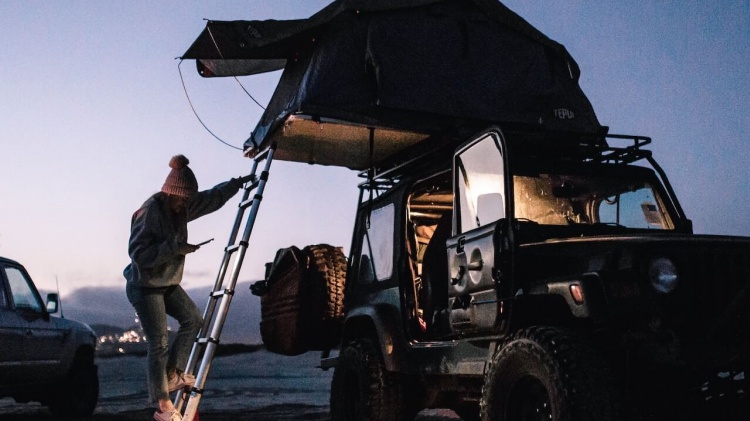
Starting your journey into car camping can feel like navigating uncharted territory, particularly for beginners. I remember the confusion and uncertainty I faced during my initial forays into this adventurous world.
It’s a learning curve, where each trip is an opportunity to discover what truly matters for the ultimate car camping experience. Through trial and error, I’ve come to appreciate the essentials that transform a simple car camping trip into an unforgettable adventure.
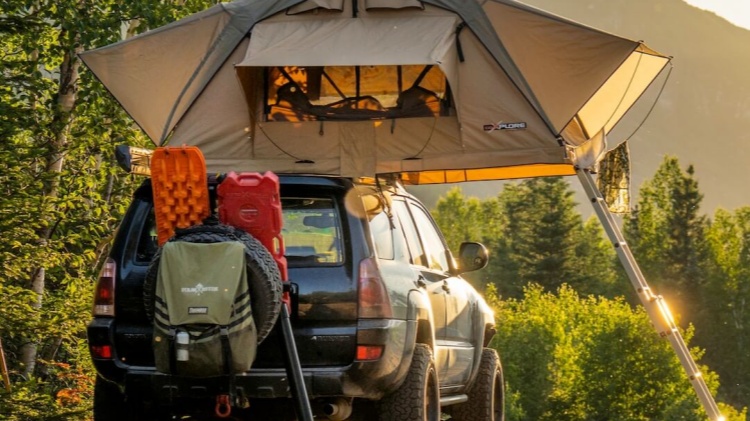
As I gear up for my inaugural road trip, I dove deep into countless online resources, seeking the ideal set of essentials for car camping. What I encountered was a myriad of packing lists, each varying wildly from the next, making the prep work seem more daunting than the journey itself. Not to mention, the costs were adding up fast.
The reality hit when I realized that much of the gear I had acquired was more suited for traditional tent or backcountry camping, which wasn’t my plan. My adventures mostly involved staying in urban areas, using public parking spaces as my nightly base, and constantly moving through quaint towns and along scenic highways. The standard camping gear, it turned out, was largely unnecessary for this style of car camping. Although a few purchases proved their worth, looking back, I could have managed far less.
In this guide, I aim to distill my experience into a list of absolute must-haves for car camping — the kind of essentials that are both practical and versatile. These are the items I found indispensable, as well as a few I seldom used but might be useful for you. The beauty of investing in these car camping essentials is their longevity; they are not only crucial for your next trip but will serve you well in many more adventures to come.
Before you embark on the ultimate car camping experience, it’s crucial to define what car camping means for you, as this will significantly influence your packing strategy.
Car camping can take various forms, and this guide delves into the specifics of each type. Broadly, it involves either sleeping inside your vehicle in a legally designated area (like a community parking area, Walmart, Cracker Barrel, travel center, or public land) or setting up a tent at a designated campsite right next to your car. The choice between the comfort of your car or the traditional tent setup leads to different camping experiences and necessitates different sets of gear.
Car camping offers the luxury of bringing along more substantial items, allowing you to create a comprehensive campsite complete with a full kitchen setup, large tents, and ample space for relaxation – perfect for those new to the camping world. My personal preference leans towards solo travel, where I keep my setup minimalistic and discreet, often opting to sleep in my car in various parking lots. This allows me the freedom to explore different locales during the day and find new spots to rest at night.
In this guide, I will provide insights into the essential items you need for both styles of car camping, ensuring you’re well-prepared for your adventure, whether you choose the coziness of your car or the allure of a tent under the stars.
When planning for the ultimate car camping experience, your packing list will vary based on your chosen destination – be it a regular campsite, state park, BLM public land, or a national park. Traditional camp settings call for a comprehensive gear list including items like a sleeping bag, sleeping pad, camp stove, chairs, a tent, and possibly a table if one isn’t available on-site.
My personal approach to car camping often involves staying inside my vehicle, typically for just a night or two in each location. This means my setup is far more streamlined – I rarely use a tent, sleeping bag, table, chair, or propane stove. While I have a fondness for the serene beauty of state and national parks, my spontaneous travel style often means these spots are booked by the time I plan my trip.
For those able to reserve a spot in a park, I recommend selecting a drive-up campsite, ensuring your car is conveniently close to your tent site. It’s important to note that some managed campgrounds and national parks have specific rules about sleeping in cars, even with a tent site booked. While I can’t speak to the enforcement of these rules, they are something to be aware of when planning your car camping adventure.
One of the non-negotiable essentials for any car camping checklist is fresh water, an absolute necessity for survival and comfort. Staying hydrated is crucial, with the recommendation being at least 2 liters (roughly 64 ounces) per day, and even more if you’re camping in warmer climates.
To ensure a constant supply of clean water, I always pack a sturdy, refillable water container. This can be easily refilled at grocery stores or campsites that offer potable water. Alongside this, I include a portable filtration system for added security and convenience.
For day hikes or explorations away from the campsite, a hydration pack and a lightweight, collapsible water bottle are invaluable, ensuring I stay hydrated without adding too much weight to my pack.
A key component of my car camping gear is a portable, pressurized water system, indispensable for maintaining cleanliness and hygiene on the road.
My go-to is a compact yet capable 20L outdoor camping solar shower bag, perfectly sized for a range of uses. It’s primarily employed for washing hands and face, brushing teeth, and efficiently rinsing off dishes. Although originally designed for more extensive purposes, such as outdoor showers, I find it unnecessary for daily use during camping.
Instead, for a thorough shower, I occasionally visit a local gym. This portable cleaning system, easy to use and refill, has become one of my favorite essentials for car camping, keeping me refreshed and clean, no matter where my travels take me.
When it comes to car camping, having the right cooking supplies can elevate your experience significantly. If you’re planning to stay at a campsite for an extended period, you might consider setting up a full camp kitchen. A portable propane stove is an excellent choice for such setups, offering the convenience of a home kitchen in the great outdoors.
My car camping style often involves moving frequently and sampling local flavors, so I primarily rely on my compact electric kettle and cooler. The kettle is perfect for quickly heating water for oatmeal, instant soups, and noodles, making for a quick and easy meal. For coffee enthusiasts, a portable Java Drip or a French Press is a must-have for that fresh morning brew.

If you’re keen on preparing your meals, don’t forget essential kitchen tools. With a burner stove, you can whip up gourmet dishes right at your campsite. Make sure to have a water source nearby for easy cleanup. A foldable table and a collapsible chair will provide comfort while cooking and dining. Here’s a quick rundown of the cooking essentials for a fulfilling car camping kitchen:
These items not only add comfort to your car camping journey but also allow you to enjoy the pleasures of cooking and eating in the great outdoors.
An often overlooked but crucial aspect of car camping is the food. Throughout my many road trips, I’ve experimented with various food and snack options, ultimately settling on a selection of favorites. While I enjoy sampling local cuisines when passing through towns, I have a go-to list for when such options aren’t available.
My preference leans towards dehydrated foods and pre-cooked meal packets, which offer the convenience of quick, hassle-free preparation and minimal clean-up, allowing more time for exploration.
For on-the-go car camping, consider these easy-to-prepare foods:
If you’re planning to stay at a campsite and use a camp stove, your food choices might expand. On extended stays, I utilize my camp stove and water boiler to whip up delightful and straightforward meals. To help fellow car campers, I’m in the process of compiling a blog post featuring some of my favorite, easy-to-prepare car camping meals, which I’ll share soon.
Whether opting for simplicity or a bit more culinary adventure, having the right food options on your car camping trip is essential for a comfortable and enjoyable experience.
For those who, like myself, appreciate a chilled beverage or fresh food during their car camping adventures, a reliable cooler is indispensable. Initially, I considered skipping a high-end cooler to save both space and money, but the Columbia PFG High Performance Roto Cooler changed my mind. After testing various brands, I found that this model strikes the perfect balance between size and efficiency. It snugly fits behind the front seat when moved forward, creating extra room, and its ergonomic handle makes it easy to manipulate.
I use it to keep a variety of items cold – from yogurt and drinks to fruits, veggies, cheese, milk, and hard-boiled eggs. Initially, I paired it with traditional ice packs, but due to the need for frequent re-freezing – a challenge while on the road – I shifted strategies.
I also invested in a couple of innovative cooling racks designed for this cooler. These racks are a game-changer as they elevate the food above melting ice, preventing waterlogging while maintaining cool temperatures. Though I purchased two, I found that one suffices even when the cooler is full.
Pro Tip: To maximize the cooler’s efficiency, pre-chill it before loading up. I prepare my Columbia cooler by filling it with a pound of ice three days in advance. Just before departure, I replace the old ice with fresh batches, ensuring prolonged freshness for my provisions. This method significantly extends the cooler’s capability to keep items chilled throughout my car camping trips.
Enhancing your car camping experience significantly revolves around ensuring a comfortable night’s sleep. A well-thought-out bedding setup is essential, encompassing a comfortable mattress, warm blankets, a suitable sleeping bag, plush pillows, and potentially a bed platform for a level sleeping surface.
In my setup, I crafted a DIY bed platform to create a flat sleeping area in my vehicle. The challenge with many cars, like my own, is that the back seats don’t always fold down flat, leading to an uncomfortable incline. A custom-made platform can alleviate this issue.
The choice of mattress is pivotal – I selected one that I could trim to fit perfectly in my car. It’s incredibly cozy, but there are various options out there, from air mattresses to compact sleeping pads, especially useful if you’re also considering tent camping.
Temperature management is another crucial aspect. In colder weather, a thick sleeping bag is indispensable, but for warmer nights, a simple sheet and a lightweight blanket suffice.
Pillows add a touch of home comfort to your car camping bed. I always use two for extra comfort. The advantage of car camping is the protection from the elements, so you can bring along your favorite pillows without the worry of morning dew or rain.
For those opting to sleep in a tent, space and moisture considerations might lead you to choose an inflatable camping pillow or a specialized camping pillow like the HEST Camp Pillow, which combines comfort with outdoor practicality. This comprehensive approach to bedding ensures restful nights, no matter where your car camping adventures take you.
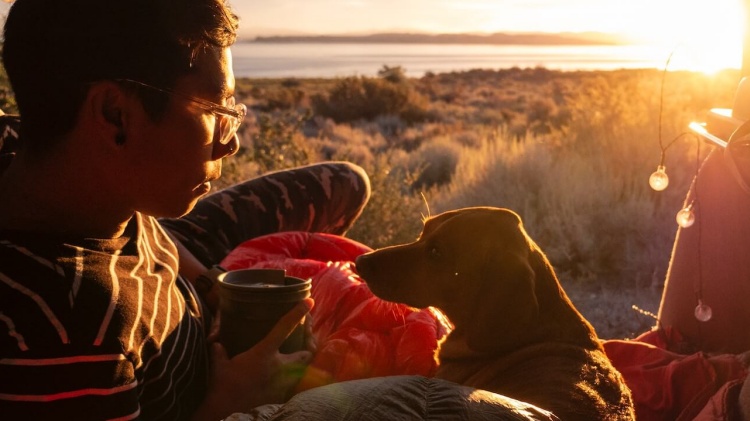
In the realm of car camping, one of the indispensable items on my list is effective window coverings. They serve multiple purposes: blocking out unwanted light for a good night’s sleep, helping regulate the interior temperature of the car, and providing privacy which is crucial for both comfort and security against theft.
Initially, I took a DIY approach, creating patterns of my car windows using newspaper as a template, and then cutting out insulation material I found at a local hardware store. I spray-painted one side black for added opacity and affixed them to the windows with duct tape. This method was effective but had its limitations.
For a more professional solution, consider products like Weathertech’s custom-made window shades, designed to fit any car model perfectly. They offer a sleek and efficient way to achieve the same results without the DIY hassle.
Pro Tip: If you opt for a homemade solution, be aware that over time, spray paint on these coverings may start to peel, leading to messy flakes. A solution is to glue fabric to one side of the insulation, enhancing both appearance and durability.
Additionally, opting for thicker insulation material can provide a snugger fit in the window frames, eliminating the need for duct tape and providing better light blocking and insulation. If you can’t find thicker cuts, consider cutting the material slightly larger than your window size to ensure a secure fit. This way, your window coverings will not only be practical but also a well-integrated part of your car camping setup.
Maintaining proper airflow inside your car is a critical aspect of a comfortable car camping experience. To this end, incorporating mesh window coverings or a specialized airflow device is essential in your camping kit. These tools are vital for ensuring fresh air circulation within your vehicle while parked, especially during the night, without the need to idle the engine or leave the A/C on, which can lead to exhaust inhalation, unnecessary fuel consumption, and battery drain.
I use a specifically designed car window mesh that effectively keeps insects out while allowing a gentle breeze in. This is particularly useful during warmer nights. However, it’s important to note that while they improve airflow, these mesh covers can let in some external light and noise, which might be an inconvenience in certain settings like busy public lots or travel centers.
For optimal ventilation, especially in warmer conditions, I rely on another solution that I find indispensable. It’s a discreet, battery-operated fan, which provides consistent airflow and enhances comfort inside the car. I find this especially handy since I generally avoid car camping in extreme hot temperatures. It’s a simple, efficient solution to keep the air moving inside the car, ensuring a pleasant and restful environment throughout the night.
Embarking on an extended road trip often means needing power for various electronics. This is where the Goal Zero Yeti Portable Power Station becomes an invaluable part of your car camping gear. Its efficiency in charging devices like phones, cameras, laptops, and other small gadgets is unparalleled, offering simultaneous and rapid charging capabilities.
Its compact size is a perfect fit for car camping, and the battery longevity is impressive, sustaining multiple charges for phones and laptops over several days. For instance, using it to power an electric kettle only consumes about 10% of its charge.
Initially, I was hesitant about the investment, but after experiencing the slow charging times of my car’s power outlets, I realized the necessity of a more efficient power source. Goal Zero Yeti was the answer. It also offers the option of solar panel attachments, available in various sizes, for self-charging capabilities.
Although I have these panels, I’ve found them less necessary for my style of travel since I can recharge the power station while driving. However, they’re an excellent option for those camping in sunny locations for extended periods.
If you plan to be off-grid for a few days without the opportunity to recharge, you might consider a larger capacity model. This portable power station is a game-changer, ensuring that all your devices stay powered up throughout your car camping adventure.
Lighting plays a pivotal role in enhancing the car camping experience, especially after sundown. While I have a fondness for classic camping lanterns, I’ve found that a combination of different lighting sources is key to versatility and convenience. I often use compact LED lanterns, valued for their longevity and brightness. These can be easily hung with an S-hook on my car’s handrail for quick access or placed on a picnic table during meal times.
The compactness of these lanterns makes them a practical choice, not only for illuminating the interior of my car when the window shades are drawn but also for outdoor use. Whether it’s for a late-night stroll around the campsite or navigating the path to the campground restroom in the dark, these LED lights prove incredibly useful. Their energy efficiency means they last a long time, ensuring that you have consistent, reliable lighting throughout your trip.
This combination of lighting solutions – portable, durable, and efficient – is essential for any car camping checklist, ensuring that you have the necessary illumination for every aspect of your adventure, from cooking and eating to late-night walks and relaxing inside your vehicle.
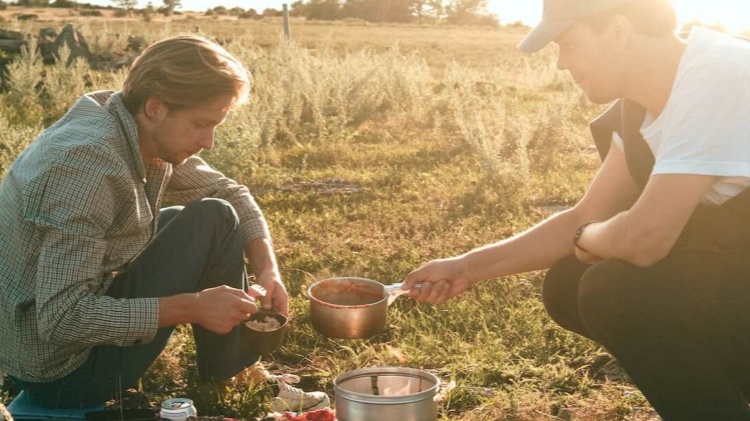
Safety is paramount in car camping, as unpredictability is part of the journey. To stay prepared, I pack a range of car protection and personal safety items, ensuring peace of mind on the road. Regular vehicle maintenance is the foremost priority, but here are additional essentials:
As a solo camper, being constantly aware of my surroundings and having contingency plans is crucial. While I’ve been fortunate to avoid serious car issues or threatening situations, being equipped with basic car knowledge and these safety items offers reassurance to both me and my loved ones. This approach to safety is a cornerstone of ensuring a stress-free and enjoyable car camping experience.
Keeping up with personal hygiene is a crucial aspect of car camping, especially when traditional shower facilities aren’t readily available. My Rinse Kit has been a game-changer for staying clean and refreshed, and a gym membership offers a convenient option for regular showers. However, for those times when a shower isn’t feasible, or you’re embracing the wilderness for extended periods, having the right hygiene products is essential.
Here’s what I always include in my hygiene kit:
Additionally, I keep an emergency stash for those middle-of-the-night needs when no facilities are available. While I’ve rarely had to use them, they’re invaluable in a pinch. These items ensure that, regardless of your location or the facilities available, you can maintain a level of cleanliness and comfort that makes the car camping experience all the more enjoyable.
In addition to the major camping gear, there are several small yet incredibly useful tools that I’ve found indispensable for any car camping trip. These items might seem minor, but their utility in various situations can’t be overstated.
Each of these tools, while small in size, plays a significant role in enhancing the convenience and efficiency of your car camping experience. They address a variety of needs, from practical fixes to comfort and hygiene, making them must-haves in your camping toolkit.
After delving into the details of what makes car camping both enjoyable and practical, here’s a concise recap of my top 10+ essentials for these adventures. These items have been carefully selected based on my experiences of sleeping in my car and continuously being on the move, rather than camping in remote locations for extended periods.
Each of these essentials contributes to a well-rounded and prepared car camping experience, ensuring comfort, safety, and enjoyment, no matter where the road takes you.
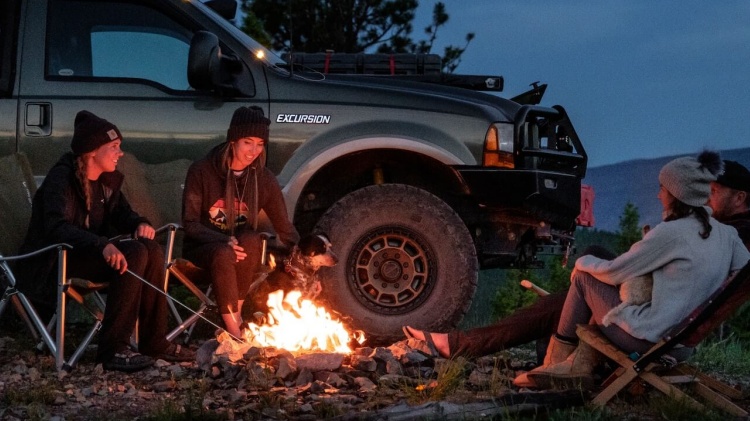
When embarking on a car camping adventure in more isolated areas like remote campsites or BLM land, where supplies are not readily available, it’s essential to be well-prepared. Here’s a checklist of must-have items for such scenarios:
It’s also important to practice responsible camping habits, especially in remote areas. Always bathe and wash dishes at least 200 feet away from natural water sources, and use biodegradable soap to minimize environmental impact. Avoid scented products and those containing harmful chemicals like sodium Laureth sulfate, parabens, phthalates, ammonium chloride, formaldehyde, and artificial fragrances, as they can disrupt the local ecosystem and attract wildlife.
By following these guidelines and packing these essentials, you’ll be well-equipped to enjoy a safe and sustainable remote car camping experience.
I trust that this comprehensive list of essentials for the ultimate car camping experience, along with the accompanying PDF checklist, will prove invaluable as you plan your next adventure on the road. While some of these items may represent a significant initial investment, they are designed to serve you on countless trips in the future, enhancing each journey with comfort and convenience.
If you’re still contemplating whether car camping is the right fit for you, I encourage you to seek further insights. There are numerous resources available that offer a deeper understanding of what life on the road entails.
Car camping has its unique charms – it’s easy, liberating, and often more affordable than other forms of travel. It might not be everyone’s cup of tea, but it’s undoubtedly an adventure worth exploring. You might discover a newfound passion for this style of travel, experiencing the freedom and joy it brings, only once you embark on your own car camping journey.


Every travel kettle is a potential canvas waiting to be transformed into a piece that not only brews your favorite drinks but also showcases your

When you think of customizing your travel tea kettle, the idea of adding LED lights probably isn’t the first thing that comes to mind. However,

Every travel kettle enthusiast knows the pain of a lukewarm cup of tea or coffee. It’s like expecting a hug and getting a handshake. But

There’s something uniquely comforting about enjoying a hot cup of tea while on the road, but keeping your travel tea kettle warm and protected can

Every travel kettle is a potential canvas waiting to be transformed into a piece that not only brews your favorite drinks but also showcases your

When you think of customizing your travel tea kettle, the idea of adding LED lights probably isn’t the first thing that comes to mind. However,

Every travel kettle enthusiast knows the pain of a lukewarm cup of tea or coffee. It’s like expecting a hug and getting a handshake. But

There’s something uniquely comforting about enjoying a hot cup of tea while on the road, but keeping your travel tea kettle warm and protected can
Copyright © 2024 brewgotravelkettle. All Rights Reserved.